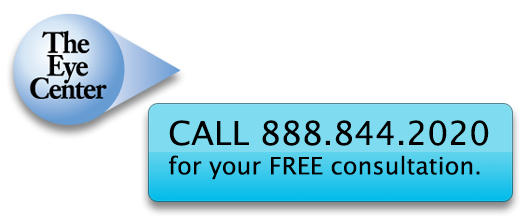Dry Eye Syndrome
Dry Eye: Overview
Also see DRY EYE
Dry eye is a condition that affects millions of people every day. It is often a normal part of the aging process. Other causes include exposure to environmental conditions, injuries to the eye, or general health problems. For example, people with arthritis and diabetes are more prone to dry eye. Some other specific causes of dry eye include:
- Sun
- Wind
- Cold
- Dry air
- Indoor heating and air conditioning
- Computer screens
- High altitudes
- Eye surgery
Printable Version (PDF)
Dry eye syndrome is literally the eye’s inability to lubricate and tear correctly. Oddly enough, some people who have dry eye syndrome actually tear excessively. Unfortunately, the pH or acidity of their tears is altered so that the eyes still feel dry and itchy, causing them to tear continuously.
It is very common, especially in the older population, particularly in older women. Women often experience dry eye syndrome during and after menopause, due to a decrease in female hormone levels. Other hormone-altering events such as pregnancy, menstruation and the use of birth control can contribute to dry eye syndrome.
The use of certain medications can also alter the eye’s ability to lubricate. Some of the most common medications are:
- antihistamines
- decongestants
- blood pressure medication
- antidepressants
- anti-anxiety medication
- Certain types of diseases can also alter the eyes. These include:
- thyroid deficiencies
- Sjorgrens syndrome
- rheumatoid arthritis
- autoimmune disorders (i.e. lupus, HIV)
- Bell’s palsy
- myasthenia gravis
- Symptoms
The severity and symptoms of dry eye vary from person to person, although there are three distinct degrees of dryness: mild, moderate, and severe. Symptoms of dry eye include:
- Redness
- Burning
- Itching
- Scratchiness
- Tearing
- Sensitivity to light
- Mucus secretion
It is important to note some people suffer from all symptoms, while others may experience only a few. If you are experiencing any of the above symptoms, be sure to ask your eye doctor about dry eye. If you have dry eye, your doctor can help you choose an eye lubricant that’s right for you.
Treatment
Your doctor may prescribe one or more of the following treatments:
- artificial teardrops (saline-type solutions)
- ointments placed in the eyes to lubricate
- temporarily or permanently plugging the tear ducts while manually replacing the tears with drops or ointments
- hormone replacement, if due to menopause
- change in birth control prescription, if applicable
No cure currently exists for dry eye syndrome. Your doctor can help you address the symptoms.
This educational material is provided by Dialog Medical.
© Copyright 2005 Dialog Medical
All Rights Reserved
The Eye Center
Call Toll Free 1.888.844.2020

